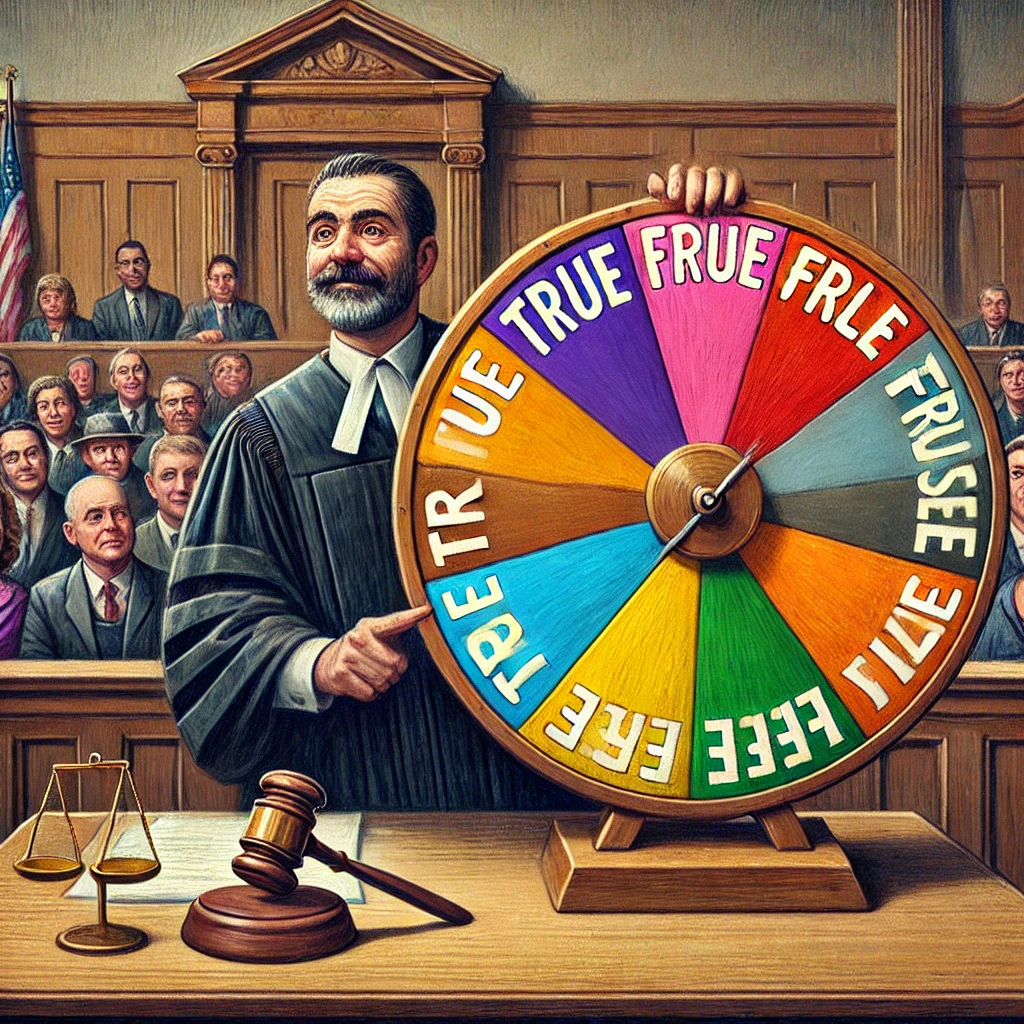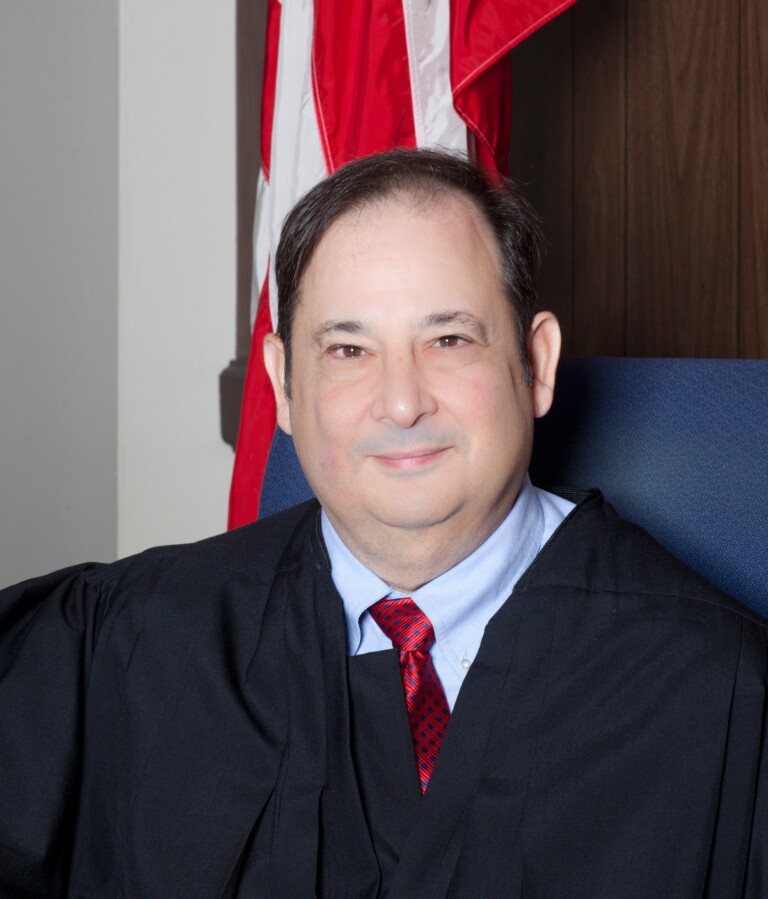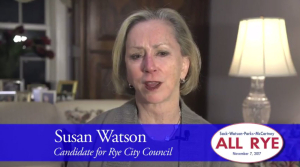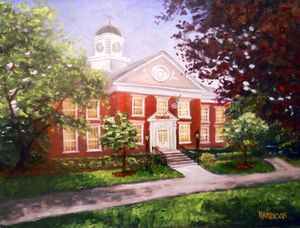Holding Court: Playing True or False with Your Rights

Holding Court is a series by retired Rye City Court Judge Joe Latwin. Latwin retired from the court in December 2022 after thirteen years of service to the City.
What topics do you want addressed by Judge Latwin? Tell us.
By Joe Latwin
Let’s play true or false with your rights.
I am always surprised when people assert they have Constitutional rights but don’t really know what they are or from where they come. So, let’s play. We will deal with the rights asserted under the Bill of Rights – the first ten Amendments to the Constitution.
1 – The First Amendment expressly provides for a right to freedom of speech. True or false?
Like most of the Bill of Rights, there are few rights granted. Rather, there are limitations on the government. The First Amendment does not expressly provide a right to free speech. Instead, it says “Congress shall make no law respecting an establishment of religion or prohibiting the free exercise thereof or abridging the freedom of speech, or of the press.” It does go onto to recognize “the right of the people peaceably to assemble, and to petition the Government for a redress of grievances.”
2 – The Second Amendment grants the right to bear arms. True or False?
The answer is a little nuanced. It says, “the right of the people to keep and bear Arms, shall not be infringed.” Thus, it recognizes the right to keep and bear arms but does not expressly grant the right; only that the right may not be infringed. The Supreme Court has said that the right to bear arms was established and existed before the Constitution thus it was unnecessary to express the right.
3 – Very few know what the Third Amendment is about. Do you?
The Third Amendment says “No Soldier shall, in time of peace be quartered in any house, without the consent of the Owner, nor in time of war, but in a manner to be prescribed by law.” No right is expressed – just a limit on the military. The origin of this Amendment was the dissatisfaction of the Bostonians who were forced out of their homes so that British soldiers could be billeted before the Revolution. This Amendment is married to the Fifth Amendment’s requirement of just compensation.
4 – The Fourth Amendment sets forth several rights. True or false?
The Fourth Amendment expresses only one right. It says “The right of the people to be secure in their persons, houses, papers, and effects, against unreasonable searches and seizures…” It provides the right not to be unreasonably searched or have themselves or their stuff seized. The most troublesome word in the Fourth Amendment is “unreasonable”. That word requires weighing facts and circumstances after the fact to determine what is reasonable.
5 – The Fifth Amendment expresses the right against self-incrimination and the right not to be tried twice for the same offense. True or false?
The Fifth Amendment expresses no state rights. It is all in the negative. “No person shall be held to answer for a capital, or otherwise infamous crime, unless on a presentment or indictment of a Grand Jury, except in cases arising in the land or naval forces, or in the Militia, when in actual service in time of War or public danger; nor shall any person be subject for the same offence to be twice put in jeopardy of life or limb; nor shall be compelled in any criminal case to be a witness against himself, nor be deprived of life, liberty, or property, without due process of law; nor shall private property be taken for public use, without just compensation.”
6 – The Sixth Amendment is chock full of rights. True or false?
The Sixth Amendment states several rights – the most of any amendment, including the right to a speedy and public trial, the right to trial by an impartial jury of the State and district wherein the crime shall have been committed, the right to be informed of the nature and cause of the accusation; the right to be confronted with the witnesses against him; the right to have compulsory process for obtaining witnesses in his favor, and the right to have the Assistance of Counsel for his defence.
7 – The Seventh Amendment grants the right to a jury trial in all cases. True or false?
The Seventh Amendment grants the right to a jury trial in right of trial by jury only in civil cases where the amount in controversy exceeds twenty dollars. In 2024 dollars, that is about $725. In federal court, civil cases usually must involve $75,000 in order to invoke federal jurisdiction.
8 – The Eighth Amendment grants the right to be free of cruel and unusual punishment. True or false?
The Eighth Amendment bars excessive bail, excessive fines, and cruel and unusual punishments.
9 – The Ninth Amendment preserves other rights. True or false?
The Ninth says the rights enumerated in the Constitution, can’t be construed to deny or disparage others retained by the people.
10 – The Tenth Amendment gives no rights. True or false?
The Tenth Amendment says that powers not delegated to the United States by the Constitution, nor prohibited by it to the States, are reserved to the States respectively, or to the people.
Well, how did you do? Did you know your rights? Were you surprised by how many rights you thought were set forth in the Bill of Rights that aren’t in there?






